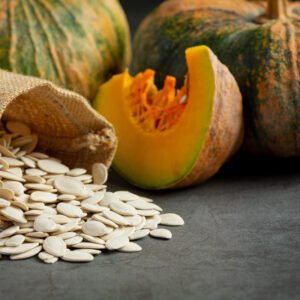Introduction
The agricultural sector has experienced a major transition toward sustainable farming methods during the past few years. The growing preference for organic fertilizers over synthetic options represents one of the most significant changes in modern farming practices. Organic fertilizers originate from natural materials like compost and manure, unlike chemical-based fertilizers. Organic fertilizers deliver essential soil nutrients while supporting both lasting soil fertility and environmental health.
Multiple benefits of organic fertilizers attract attention from farmers, agronomists, and environmentalists because they improve soil structure and reduce pollution. Leading agricultural products supplier CMS Industries supports sustainable farming practices through its provision of premium organic solutions.
This detailed resource examines the primary benefits of organic fertilizers alongside their effects on crop production, soil quality, environmental health, and provides reasons for farmers to switch to organic methods.
What Are Organic Fertilizers?
Organic fertilizers are natural substances derived from plant, animal, or mineral sources. They release nutrients slowly, ensuring long-term soil fertility without harmful side effects. Some common types include:
- Compost (decomposed organic matter)
- Manure (cow, poultry, or sheep dung)
- Bone meal (rich in phosphorus)
- Fish emulsion (high in nitrogen)
- Green manure (cover crops like clover or alfalfa)
Unlike synthetic fertilizers, organic variants improve soil biology and structure while minimizing chemical runoff.
Top Benefits of Organic Fertilizers in Farming
1. Enhances Soil Health and Fertility
One of the most significant benefits of organic fertilizers is their ability to improve soil structure. They increase microbial activity, which helps break down organic matter into humus, a nutrient-rich component essential for plant growth.
- Boosts water retention in sandy soils.
- Improves aeration in clayey soils.
- Encourages earthworm activity, which naturally tills the soil.
2. Slow and Steady Nutrient Release
Chemical fertilizers provide an immediate nutrient boost but often lead to nutrient leaching. Organic fertilizers, on the other hand, release nutrients gradually, ensuring:
- Longer-lasting nourishment for crops.
- Reduced risk of over-fertilization and root burn.
- Balanced nutrient availability throughout the growing season.
3. Environmentally Friendly and Sustainable
Synthetic fertilizers contribute to water pollution through runoff, harming aquatic life. Organic fertilizers, being natural, reduce environmental damage by:
- Decreasing greenhouse gas emissions.
- Preventing soil degradation.
- Supporting biodiversity by maintaining healthy ecosystems.
4. Improves Crop Quality and Yield
Studies show that crops grown with organic fertilizers often have:
- Higher nutritional value (more vitamins and minerals).
- Better taste and aroma (especially in fruits and vegetables).
- Increased resistance to pests and diseases due to stronger root systems.
5. Cost-Effective in the Long Run
While organic fertilizers may have a higher upfront cost than synthetic ones, they reduce dependency on chemical inputs over time. Farmers benefit from:
- Lower expenses on repeated fertilizer applications.
- Reduced need for pesticides due to healthier plants.
- Enhanced soil fertility decreases the need for external inputs.
6. Safe for Livestock and Humans
Chemical residues from synthetic fertilizers can contaminate food and water supplies, posing health risks. Organic fertilizers, being natural, are:
- Non-toxic to animals and humans.
- Free from harmful synthetic additives.
- Safe for organic farming certifications.
CMS Industries: Advocating Sustainable Farming with Organic Solutions
As a trusted agricultural products manufacturer and supplier, CMS Industries plays a vital role in promoting organic farming. They provide:
- High-quality organic fertilizers tailored for different crops.
- Eco-friendly farming solutions that align with global sustainability goals.
- Expert guidance on transitioning from chemical to organic fertilizers.
By partnering with CMS Industries, farmers gain access to reliable, natural fertilizers that enhance productivity while protecting the environment.
How to Transition from Chemical to Organic Fertilizers
Switching to organic fertilizers requires a strategic approach:
- Soil Testing – Analyze nutrient deficiencies before application.
- Gradual Replacement – Mix organic and synthetic fertilizers initially.
- Compost Integration – Use compost to improve organic matter content.
- Crop Rotation – Plant nitrogen-fixing crops like legumes.
- Monitor Progress – Track soil health and crop response over time.
Improved Soil Structure and Oxygenation
Organic fertilizers improve soil health by triggering natural microbial activity. During the decomposition process of fertilizers, beneficial organisms transform them into vital compounds, including humic acid and amino acids. Oxygen supports this biological process while being absorbed into the soil to improve its aeration. Through decomposition of organic fertilizers, the soil acquires a lighter texture and improved structure which creates an environment with high biodiversity. When plants grow in enriched soil they can absorb nutrients and moisture with ease which results in healthier development and increased resistance against pests and diseases.
Enhancing Soil Life and Retention
Organic fertilizers serve two functions in improving soil quality. Organic fertilizers help develop stronger and more stable soil structures as their initial benefit. The soil demonstrates improved water retention capabilities along with essential nutrients maintenance as a result of prolonged organic fertilizer use. Long-term crop health and resilience emerge from consistent and proper use of these fertilizers. Organic fertilizers provide a more comprehensive spectrum of nutrients compared to synthetic alternatives which primarily deliver major nutrients like N-P-K. These essential micronutrients like calcium, magnesium, zinc, sulfur, and copper, are indispensable for proper plant development.
Slow and Steady Nutrient Release
Organic fertilizers stand out for their ability to slowly release nutrients like nitrogen, phosphorus and potassium. The slow nutrient delivery from organic fertilizers takes place when soil bacteria decompose the fertilizer pellets. Organic fertilizers provide a longer availability of nutrients to plants which decreases the need for frequent applications. This method effectively reduces nutrient loss through leaching and prevents root damage which typically results from excessive chemical fertilizer application.
Sustainable and Eco-Friendly Choice
Organic fertilizers offer increased safety during handling and application because their lower concentration levels reduce potential risks compared to synthetic fertilizers. Their non-toxic and biodegradable properties along with environmental friendliness, make these products perfect for greenhouse farming and sustainable agriculture practices. The ongoing use of these products preserves soil health while preventing environmental contamination and helps to create a cleaner and greener future.
Conclusion
The benefits of organic fertilizers in farming are undeniable from enhancing soil health to reducing environmental impact. As the world moves toward sustainable agriculture, adopting organic fertilizers is no longer an option but a necessity.
Companies like CMS Industries are leading the charge by supplying high-quality organic farming products, ensuring farmers have access to eco-friendly solutions. By making the switch, farmers can achieve better yields, healthier crops, and a greener planet.
Frequently Asked Questions
1. What Are the Main Differences Between Organic and Synthetic Fertilizers?
Organic fertilizers obtained from natural resources such as compost and manure release nutrients gradually and enhance soil health. Chemically manufactured synthetic fertilizers deliver nutrients instantly, yet they threaten soil integrity and environmental quality. Organic fertilizers support sustainable soil fertility while synthetic alternatives risk causing environmental damage through nutrient runoff.
2. How Often Should Organic Fertilizers Be Applied to Crops?
Apply organic fertilizers between two and four times throughout the growing season, depending on the specific crop and the soil conditions. Gradual decomposition of organic fertilizers allows farmers to apply them less often compared to synthetic fertilizers. Soil testing helps identify the best fertilization schedule to maintain nutrient balance and prevent excessive fertilizer use.
3. Can Organic Fertilizers Increase Crop Yields as Effectively as Chemical Fertilizers?
The yield performance of organic fertilizers can equal or exceed that of chemical fertilizers as time progresses. Although organic fertilizers operate at a slower rate, they enhance soil structure and water retention, plus microbial activity, which results in stronger and more resistant crop development. Research demonstrates that organic farming produces equivalent crop yields while promoting enhanced sustainability for the future.
4. Are Organic Fertilizers Safe for All Types of Plants?
Absolutely! Organic fertilizers are safe for all plants, including vegetables, fruits, grains, and ornamental crops. They provide a balanced nutrient profile without the risk of chemical burns. However, specific plants may require tailored organic blends (e.g., nitrogen-rich manure for leafy greens or phosphorus-rich bone meal for flowering plants).
5. Where Can Farmers Source High-Quality Organic Fertilizers?
Farmers can purchase organic fertilizers from trusted agricultural suppliers like CMS Industries, which offers eco-friendly and certified organic products. Local compost facilities, livestock farms, and specialized organic retailers also provide reliable options. Always verify product quality and nutrient content before purchase.





